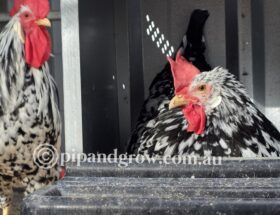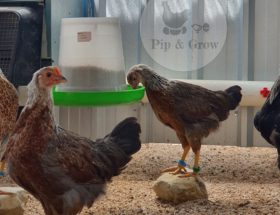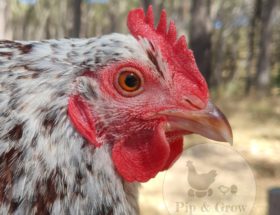Sprouted Grains can be a nutritious addition to a chicken’s diet. Sprouting grains like wheat, barley increases their digestibility and nutrient availability, making them an excellent source of vitamins, minerals, and enzymes. Here are some benefits of feeding sprouted wheat to chickens.
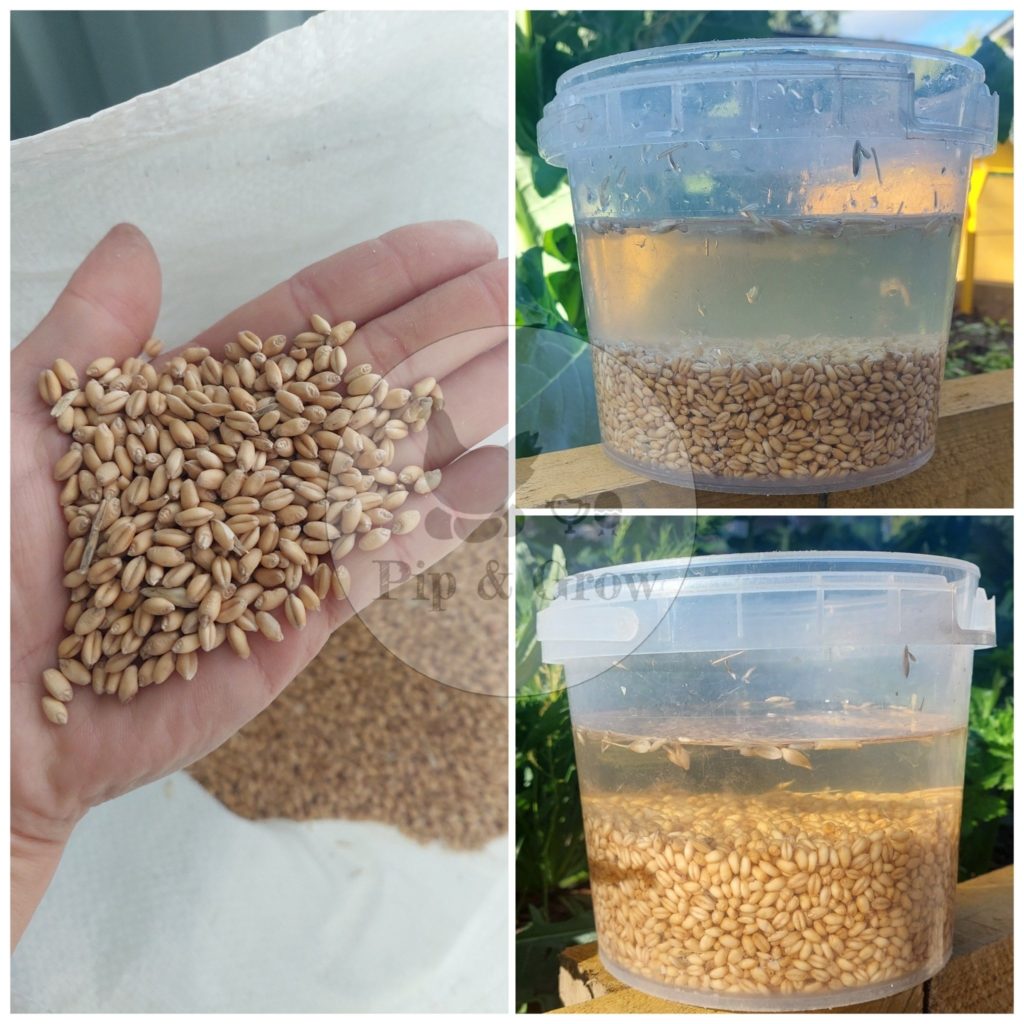
Using whole, clean grains obtained from fodder or local farmers (we are using wheat grains), you can easily sprout nutritious wheat grass for your chickens. Begin by soaking the wheat grains in water for 24 hours, allowing them to nearly double in size the next day.
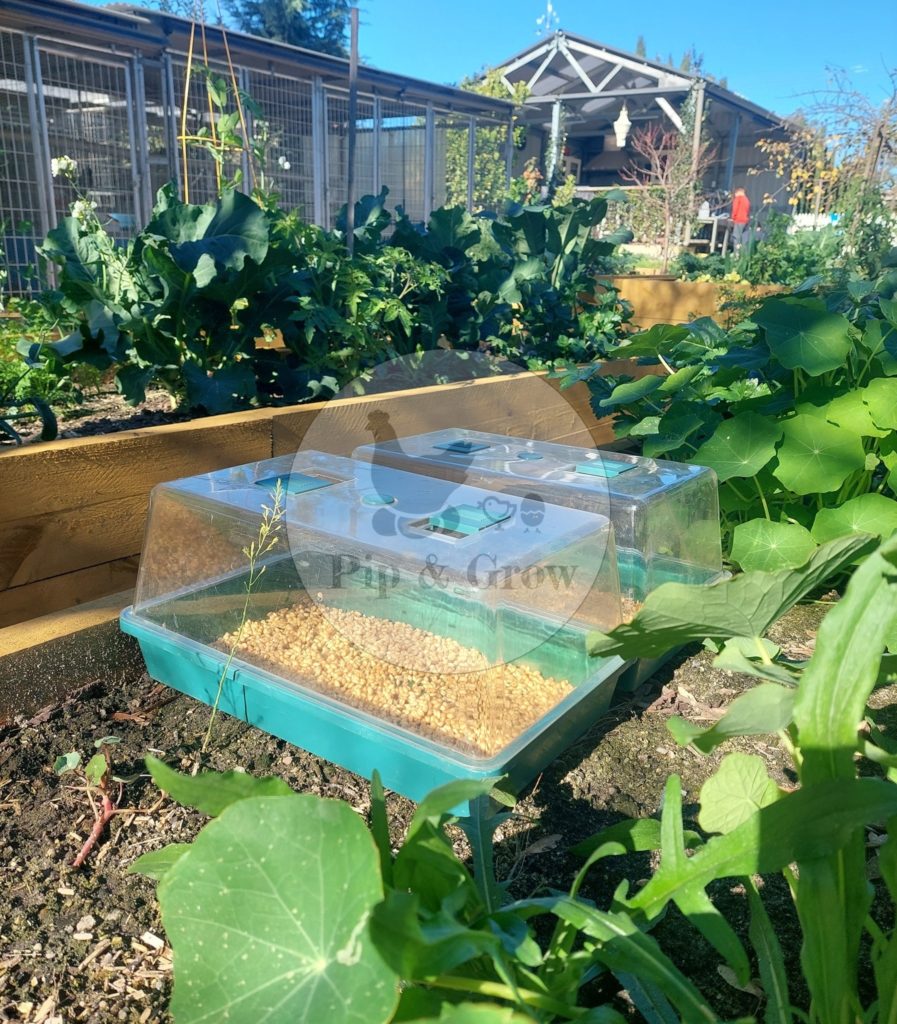
NO Soil Needed.
After draining the water from the bucket, transfer the soaked grains to seed-raising greenhouse trays or similar containers, even a large glass jar will do a job, ensuring they are placed in a warm and sunny spot during the day. In colder climates, bring the trays indoors to a warm location overnight.
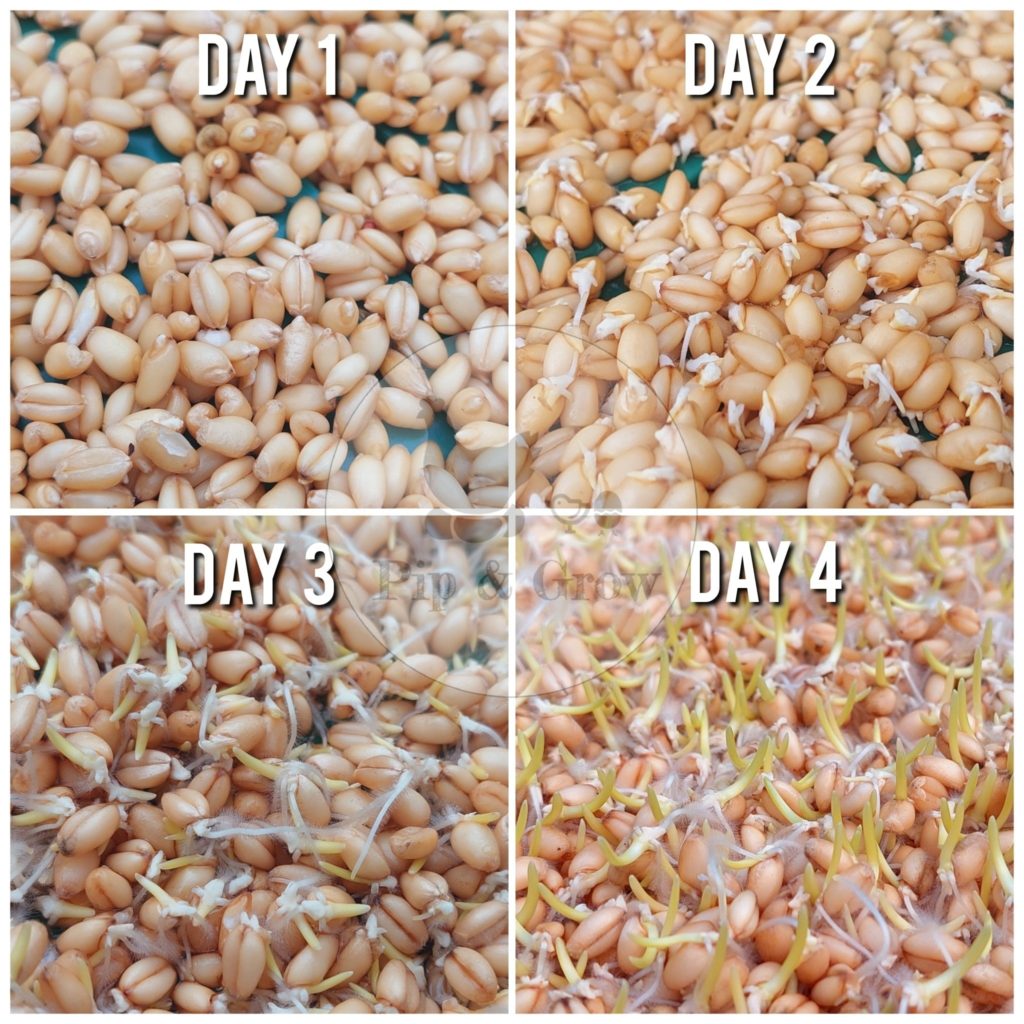
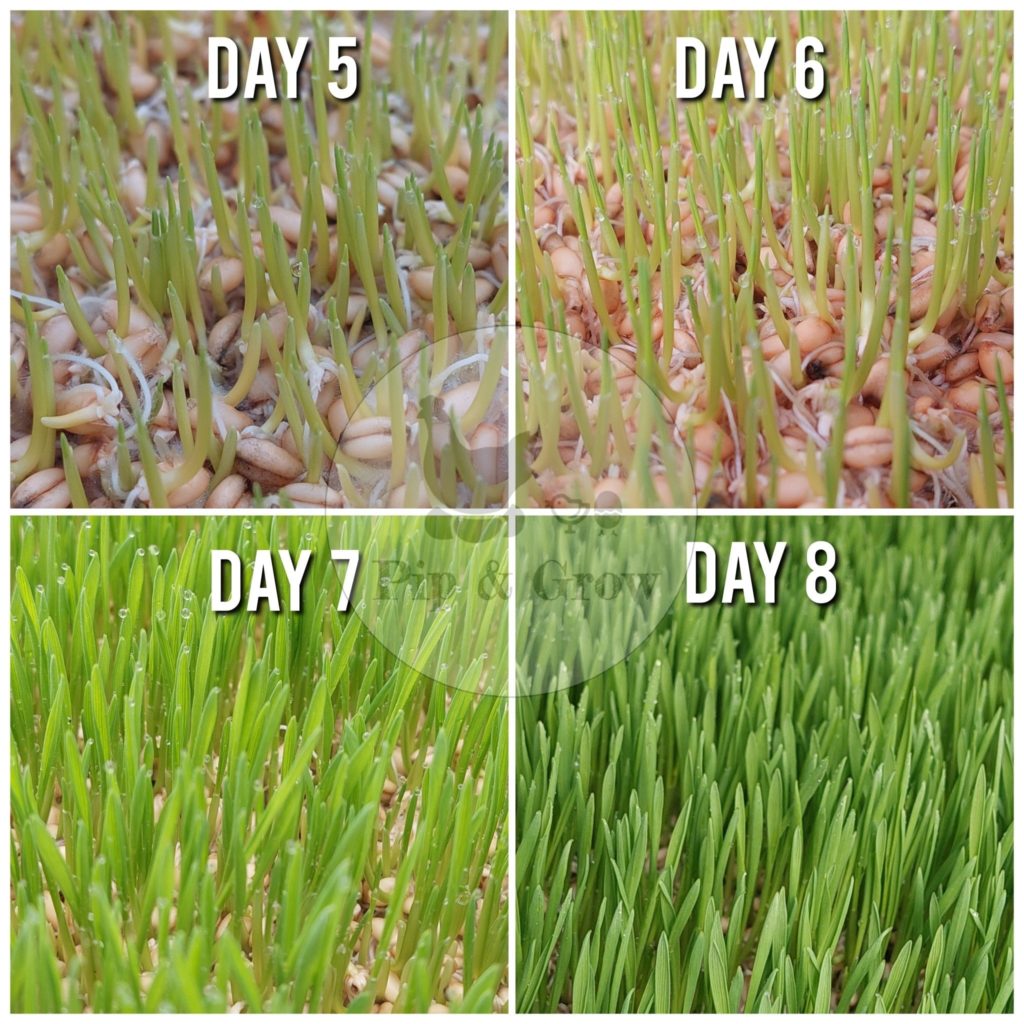
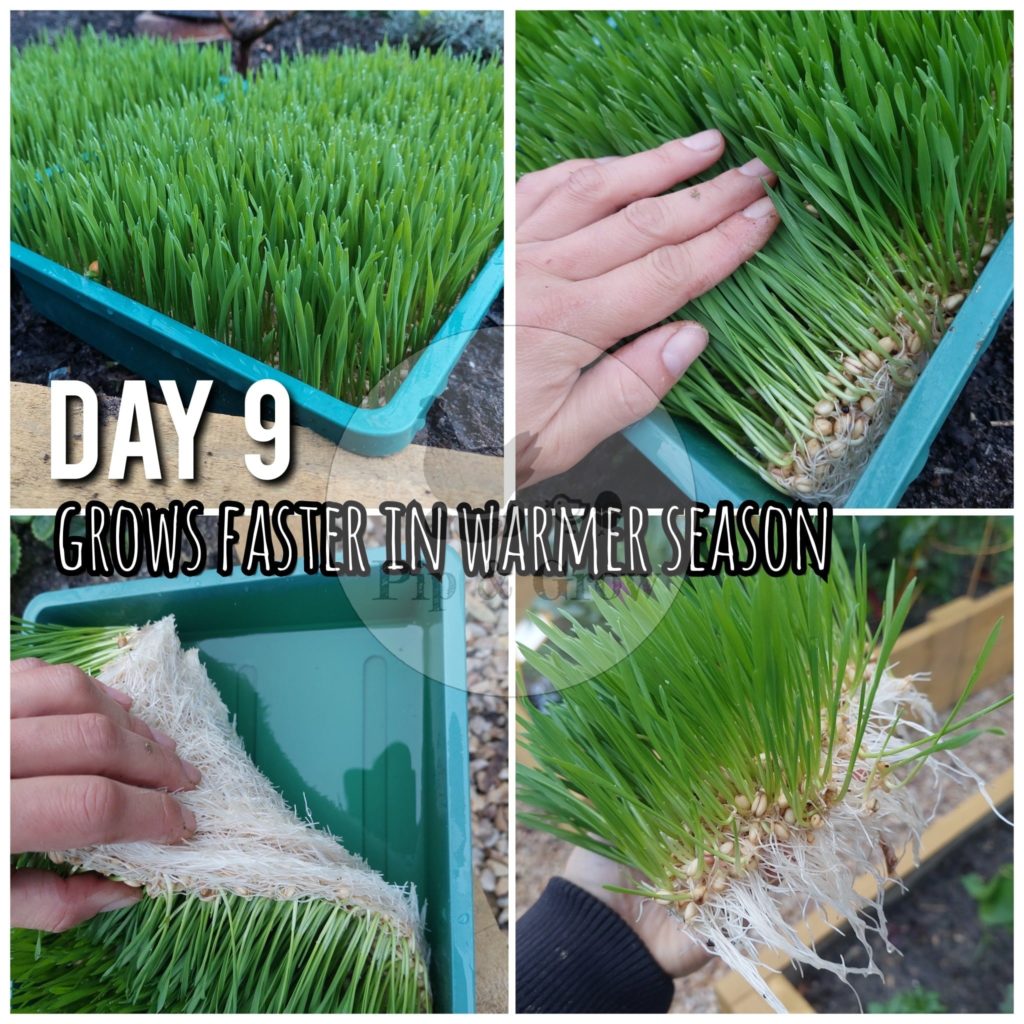
Simply pour a cup of water into the tray daily to keep the grains moist, and watch as they sprout and grow rapidly. Ventilation is important to avoid mold growth. Within 8-9 days, you’ll have a lush bed of grass ready to offer your chickens, providing them with a nutritious and enjoyable treat. Warmer weather may expedite the growth process.
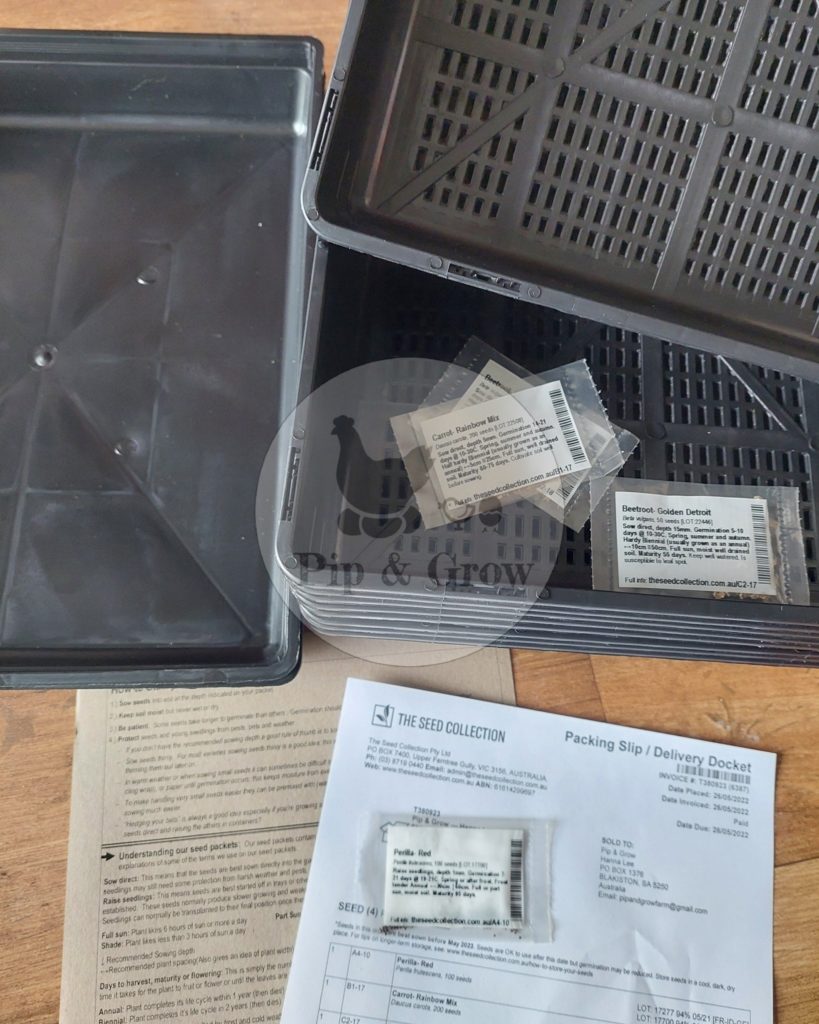
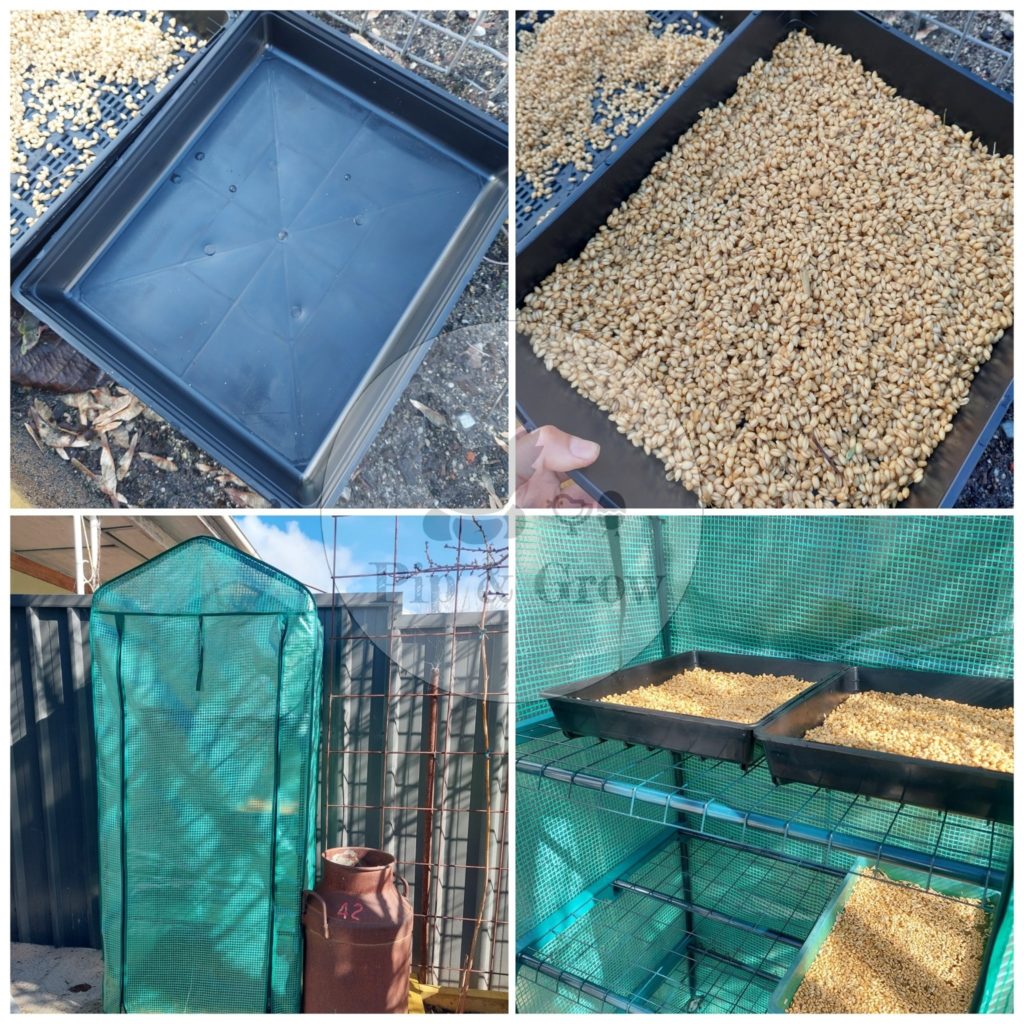
In addition to using seed raising greenhouse trays, we implement a similar process with plain trays for soaking and trays with drainage for growing. Every 2-3 days, we rotate the trays to ensure a constant supply of sprouted wheat for our chickens. Fresh trays are placed on top, while older ones move down the line. Each morning, we water the top tray to keep the sprouts moist and thriving, providing our chickens with a continuous and nutritious source of greens. This method allows for efficient and sustainable production of sprouted wheat, ensuring our flock always has access to fresh and healthy treats.
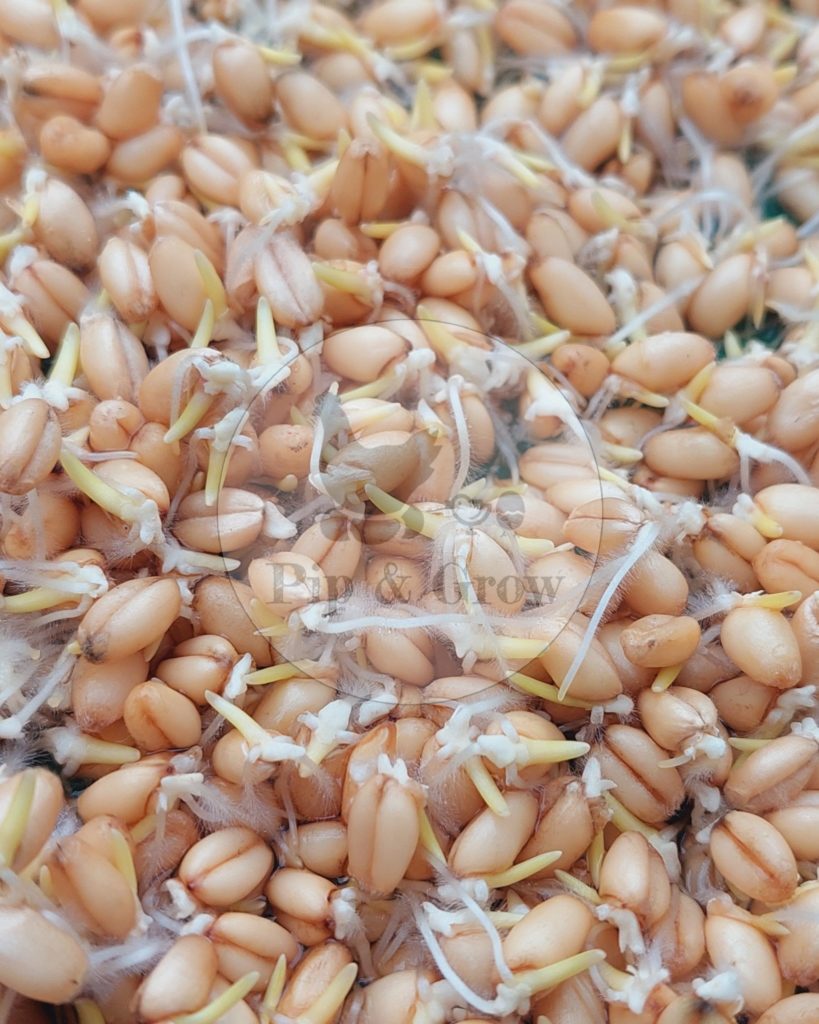
chickens can have varying preferences when it comes to consuming sprouted wheat. Some may prefer the tender sprouts around day 3-4, while others may enjoy the more developed grass stage. Ultimately, it’s up to the keeper to observe their flock’s preferences and adjust the sprouting process accordingly.
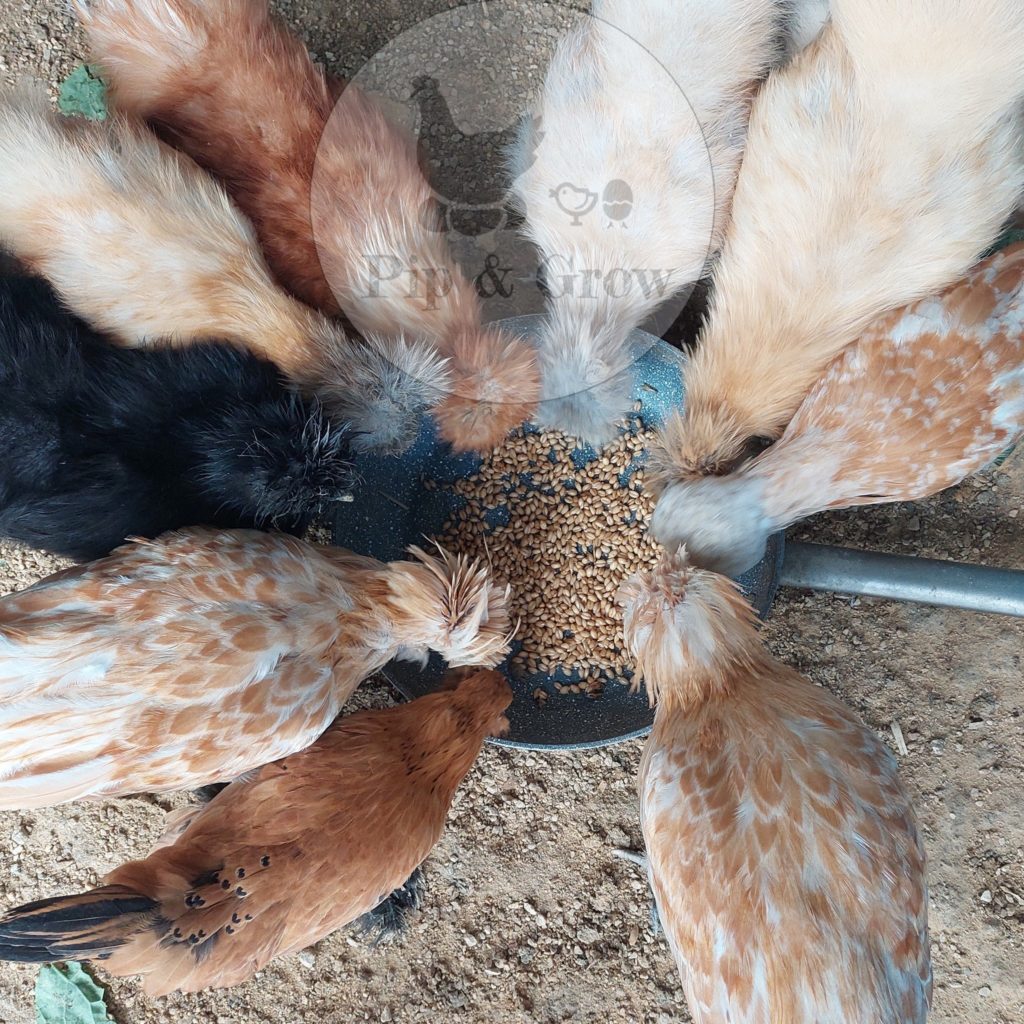
Benefits of Sprouted grains
- Improved Nutrition: Sprouting enhances the bioavailability of nutrients in wheat, making it easier for chickens to digest and absorb essential vitamins and minerals.
- Increased Protein: Sprouted wheat contains higher levels of protein compared to unsprouted grains, providing chickens with a valuable source of amino acids for growth and development.
- Enriched Nutrient Profile: Sprouting increases the vitamin and mineral content of wheat, including vitamins B, C, and E, as well as calcium, magnesium, and phosphorus, which are beneficial for overall health and immunity.
- Digestive Health: The enzymes activated during sprouting aid in digestion, promoting gut health and reducing the risk of digestive issues such as impacted crop or sour crop.
Additionally, sprouted wheat should be provided in moderation as part of a balanced diet, alongside other feed sources such as quality feed to ensure the chickens receive all the essential nutrients they need for optimal health and productivity.
Alternatively for supplying greens, If you have a space, making a garden bed for chicken is also a good idea. Here is how we made our chicken garden beds for our breeders at the farm.
